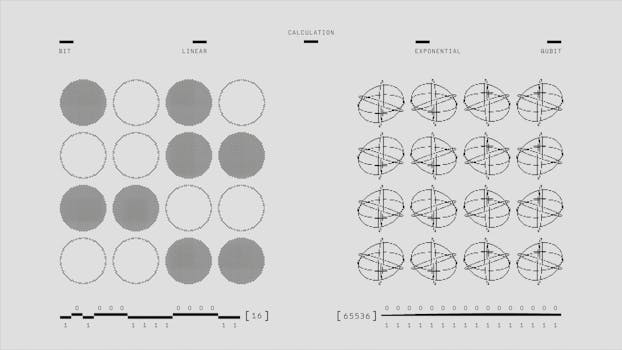
Introduction to Quantum Mechanics

Understanding quantum mechanics is essential for grasping the nature of reality. Quantum mechanics, a fundamental theory in physics, describes the physical properties of nature at the scale of atoms and subatomic particles. This branch of physics challenges our classical views, introducing concepts that seem counterintuitive yet are supported by extensive experimental evidence.
The Basics of Quantum Mechanics

At its core, quantum mechanics diverges from classical physics through principles such as wave-particle duality, uncertainty principle, and superposition. Wave-particle duality reveals that particles, such as electrons, exhibit properties of both waves and particles. The uncertainty principle, formulated by Werner Heisenberg, states that certain pairs of physical properties, like position and momentum, cannot be simultaneously known with arbitrary precision. Superposition allows particles to exist in multiple states at once until measured, illustrating the fundamental unpredictability of quantum systems.
Implications for Reality

The implications of quantum mechanics extend beyond physics, influencing philosophy, technology, and our understanding of reality itself. One significant implication is the concept of entanglement, where particles become interconnected in such a way that the state of one instantly influences the state of another, regardless of distance. This phenomenon challenges classical notions of locality and suggests a deeper interconnectedness of the universe.
Moreover, the observer effect indicates that the act of observation alters the state of a quantum system, raising questions about the nature of reality. Does reality exist independently of observation? These inquiries lead to philosophical debates about determinism, free will, and the nature of consciousness.
Technological Advances Driven by Quantum Mechanics

Quantum mechanics not only reshapes our understanding of reality but also drives technological innovation. Quantum computing, which harnesses the principles of quantum superposition and entanglement, promises to revolutionize computing power. Quantum cryptography, leveraging the uncertainty principle, offers unparalleled security in information transfer. These advancements highlight the practical applications of quantum mechanics in addressing modern challenges.
Conclusion

In conclusion, understanding quantum mechanics is crucial for comprehending the fundamental nature of reality. Its principles challenge our classical intuitions, leading to profound implications in various fields. As we delve deeper into the quantum realm, we uncover not only the secrets of the universe but also the potential for technological breakthroughs that could reshape our world.






